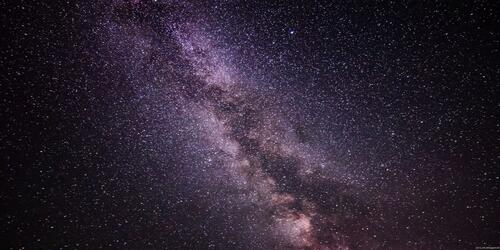Graduate Studies and Postdoctoral Affairs (GSPA)
Needles Hall, second floor, room 2201

Join us for an evening among the galaxies to learn about the matter field, gravity on very large scales, and the geometry of the universe from AMTD postdoctoral scholar, Dr. Alex Krolewski.
The event will feature a talk by Dr. Krolewski with a question-and-answer period, followed by some light refreshments and rotating tours of the Gustav Bakos Observatory. This event is open to all students and postdoctoral scholars with an interest in astronomy, dark matter and gravitational force with a focus on scholars outside the Waterloo Centre for Astrophysics.
WHEN | January 26th, 7 pm – 8:30 pm
WHERE | Physics Building
RSVP | To register, please visit An evening among the galaxies: gravitational lensing and dark energy Tickets, Thu, 26 Jan 2023 at 7:00 PM | Eventbrite. Space is limited, registration is on a first come, first serve basis.
This is a free event with limited capacity, students and postdoctoral scholars outside the Waterloo Center for Astrophysics are strongly encouraged to attend.
 Dr. Alex Krolewski was a recipient of the AMTD Waterloo Global Talent Postdoctoral Fellowship in 2020 and currently works with Dr. Will Percival at the Perimeter Institute for Theoretical Physics. He received his BA in Physics and Astrophysics from Harvard in 2015, and recently finished his PhD in Astrophysics at University of California Berkeley in June 2020 under the guidance of Dr. Martin White and Dr. Simone Ferraro. Over the last two years as an AMTD scholar, Alex has measured how much distant galaxies lens the earliest light from the Big Bang, shedding light on an intriguing discrepancy between measurements of the distant and nearby Universe. Currently, Alex is continuing his involvement in the international Dark Energy Spectroscopic Instrument (DESI) collaboration (along with members of the Waterloo Centre for Astrophysics, as well as nearly 70 research institutes around the world), which will revolutionize our understanding of the large-scale structure of the Universe.
Dr. Alex Krolewski was a recipient of the AMTD Waterloo Global Talent Postdoctoral Fellowship in 2020 and currently works with Dr. Will Percival at the Perimeter Institute for Theoretical Physics. He received his BA in Physics and Astrophysics from Harvard in 2015, and recently finished his PhD in Astrophysics at University of California Berkeley in June 2020 under the guidance of Dr. Martin White and Dr. Simone Ferraro. Over the last two years as an AMTD scholar, Alex has measured how much distant galaxies lens the earliest light from the Big Bang, shedding light on an intriguing discrepancy between measurements of the distant and nearby Universe. Currently, Alex is continuing his involvement in the international Dark Energy Spectroscopic Instrument (DESI) collaboration (along with members of the Waterloo Centre for Astrophysics, as well as nearly 70 research institutes around the world), which will revolutionize our understanding of the large-scale structure of the Universe.
Thanks to a flood of high-quality data, cosmologists over the past 20 years have precisely measured the contents of the Universe and firmly established a "standard cosmological model" that holds that the Universe is 70% dark energy, 25% dark matter, and just 5% normal matter. But this model tells us nothing about the underlying properties of dark matter or dark energy; just that they are components that gravitate without emitting light (dark matter) or cause the expansion of the universe to accelerate (dark energy). Therefore, there must be more to the picture than the standard model, and cosmologists today are on the lookout for discrepancies between datasets and hints of new theories. One intriguing discrepancy is with measurements of the amplitude of the Universe's matter density field. Measurements made with galaxies seem to disagree with measurements made on the early Universe. Dr. Krolewski will discuss how he has combined galaxies and gravitational lensing of the cosmic microwave background to make another measurement of the amplitude and assess whether this tension persists. Finally, he will talk about the Dark Energy Spectroscopic Instrument (DESI), an exciting next-generation facility that has just started taking data. Along with Dr. Will Percival and other WCA members, Dr. Krolewski is part of the DESI collaboration, which will bring a wealth of new cosmological information, including powerful new data about the amplitude of the matter field, gravity on very large scales, and the geometry of the universe.
If you have questions about the event or require special accommodation, please email Britteny Blackman at britteny.blackman@uwaterloo.ca.
Graduate Studies and Postdoctoral Affairs (GSPA)
Needles Hall, second floor, room 2201
The University of Waterloo acknowledges that much of our work takes place on the traditional territory of the Neutral, Anishinaabeg and Haudenosaunee peoples. Our main campus is situated on the Haldimand Tract, the land granted to the Six Nations that includes six miles on each side of the Grand River. Our active work toward reconciliation takes place across our campuses through research, learning, teaching, and community building, and is co-ordinated within the Office of Indigenous Relations.